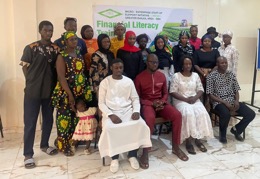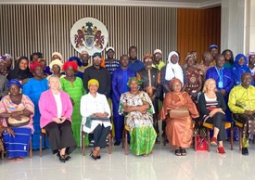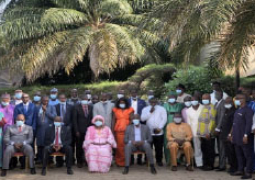
Momodou A. Ceesay, the Managing Director at Gambia Horticultural Enterprise (GHE) expressed appreciation to GIZ ECOWAS for their confidence in them as one of the implementing partners of this project.
He pointed out that there is a huge MSME financing gap for the sector which has hindered the active participation of young people in the agricultural value chain.
The training on Financial Literacy (FL), according to him, is a major requirement for the selected candidates to access grant support under the MESSI project.
He added the training is designed specifically for youth and women in the Horticulture, Poultry and Fisheries value chain to equip them with the necessary skills and knowledge to become financially empowered and independent.
Mariama Ashcroft, technical adviser for the Mini Grant Scheme at GIZ- ECOWAS project said the project targets young people (ages 18-35) and those interested in Poultry, Horticulture or Fisheries.
According to her, it is universal evidence that most start-ups fail because they do not know how to manage the finances of the business. She added that: “in the case of The Gambia, we have cultural obligations that make many of our young people fail because when they start a business, the family is expecting that you have to start supporting them immediately when the business has not started generating profit.”
She said the most important objective of the project is to help beneficiaries to understand that it is important for them to manage the finances from the beginning. “They have to know how to keep records, put in record how many chicks we have given them and how much medicine they have been supplied with.”
She further said that record keeping will also help beneficiaries to have the total cost of the package given to them in writing which will help them know the input going in.




